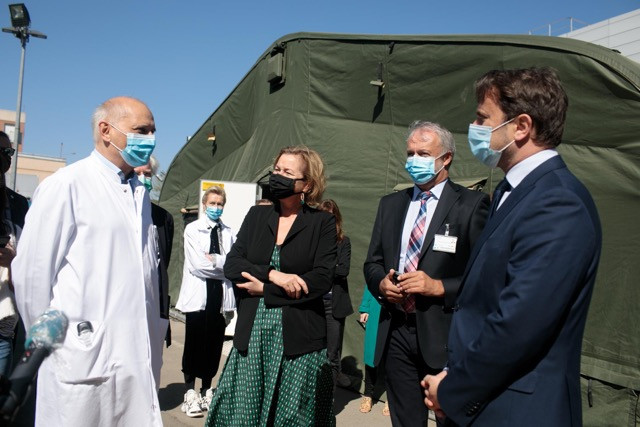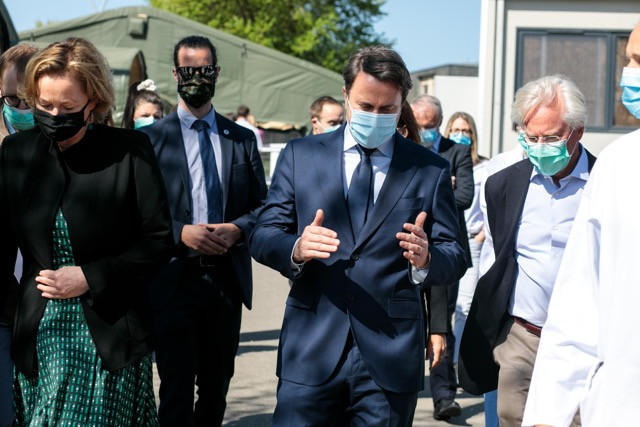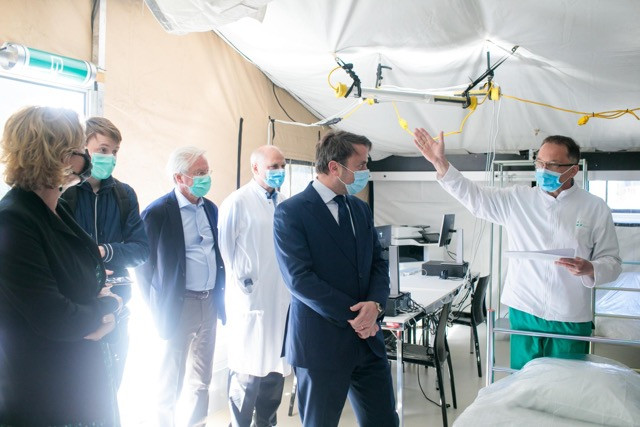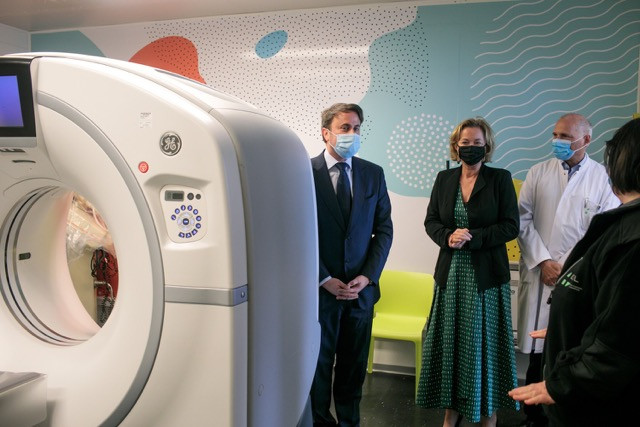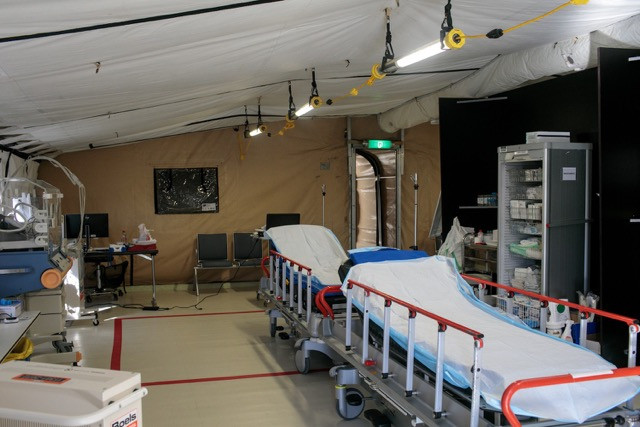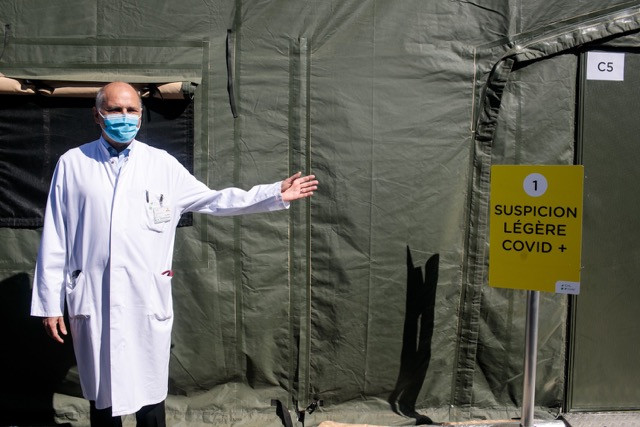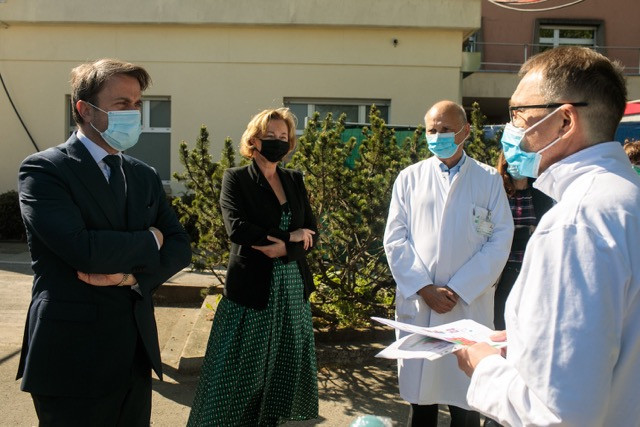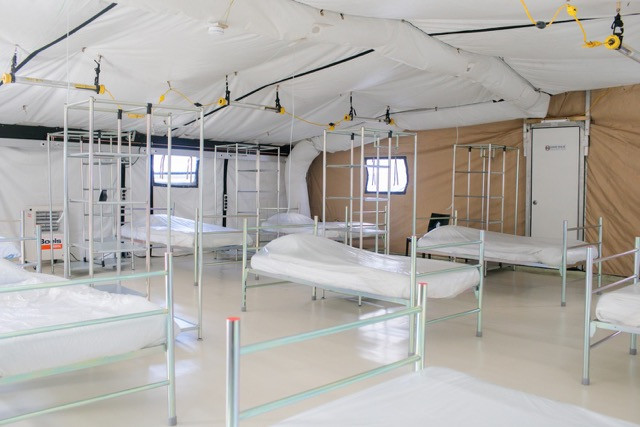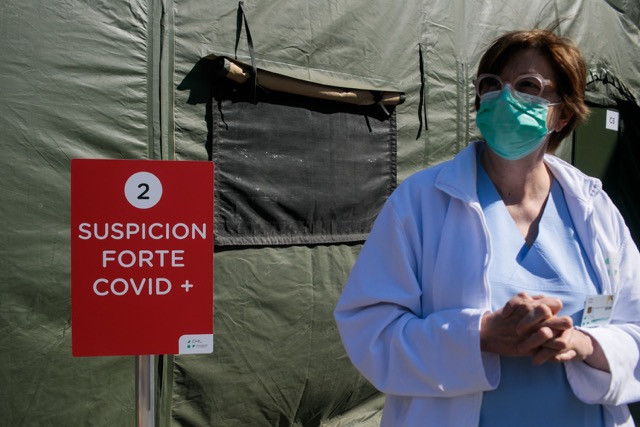The emergency war hospital was set up next to the CHL medical complex in Belair thanks to Nato, Cargolux and Felix Giorgetti to meet needs in the face of the covid-19 pandemic.
“Containment is not just about patient numbers or economic data. Containment is also about suicides, depression, domestic violence, rape and assault. It’s important to consider all of these aspects when taking action,” the prime minister said. “Governing is not reacting, it is anticipating!”
Work began on the field hospital a month ago to provide additional capacity, if the crisis got out of hand. Provided by the Nato Support and Procurement Agency, it was flown in from Bari, Italy, by Cargolux. Construction company Félix Giorgetti, meanwhile, provided 100 employees and logistical resources for its construction. Within ten days it was wired, furnished, and supplied with power, oxygen, sanitary facilities and signposting.
No guarantees
Today the area is under the strict control of the army. The field hospital will remain on site until the end of the crisis, as CHL care director Monique Birkel explained, while containment has lowered the number of new infections, there is no guarantee that the situation will remain contained. “We have a crisis unit [meeting] every two days, which decides on the means to be adopted according to different parameters. So far, we have only had to increase the capacity of the intensive care unit once,” Birkel explained.
Patients are first met in the reception room of the field hospital, from which they are guided along either a red or green path, depending on the urgency of the case. A temporary scanner is located beside the reception and also fitted for radiation. Within 15 seconds, it takes a scan of patients’ chests, enabling staff to make a rapid diagnosis regarding pneumonia and its after-effects, a symptom of covid-19.
“I hope we won't need it,” Bettel said, moving on to the bed area, which can accommodate up to 80 people.
The hospital is almost completely autonomous with only medicines prepared at the CHL, because the space did not allow for a pharmacy yet.
Not out of the woods
“So far, the desired effect with containment has worked,” Lenert said. “The plan has worked. But we have to be very careful: it doesn’t take many missteps to trigger a second wave.”
Some 50 caregivers are ready to run the field hospital. They and all of the people working at the CHL have all received safety training for themselves and for patients. Birkel said that staff still fear infecting loved ones, but many have installed airlock rituals, to prevent bringing home contaminated clothing.
Carpooling by staff has been stopped in light of social distancing measures but the hospital has increased parking capacity. “Some have taken advantage of childcare opportunities, others of the psychology unit, which organises ‘Cafés du bien-être’ where they can talk, and 60 to 70 carers are using the possibility set up by the state to sleep in hotels and save themselves the trip. The mobilisation is general!” Birkel said.
Reported by Thierry Labro; edited by Jess Bauldry
